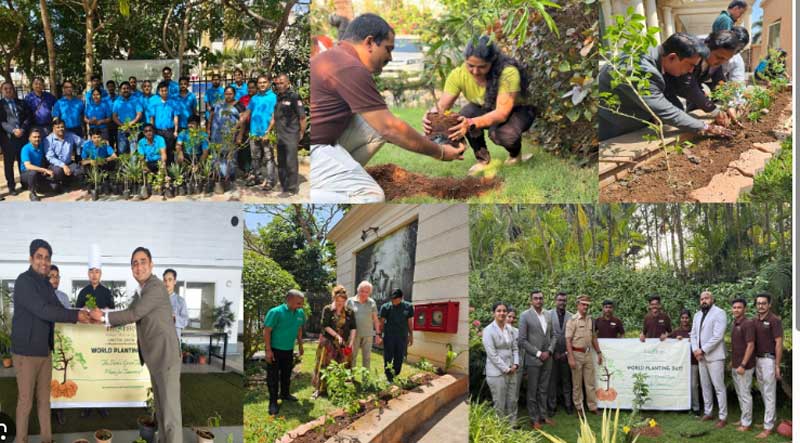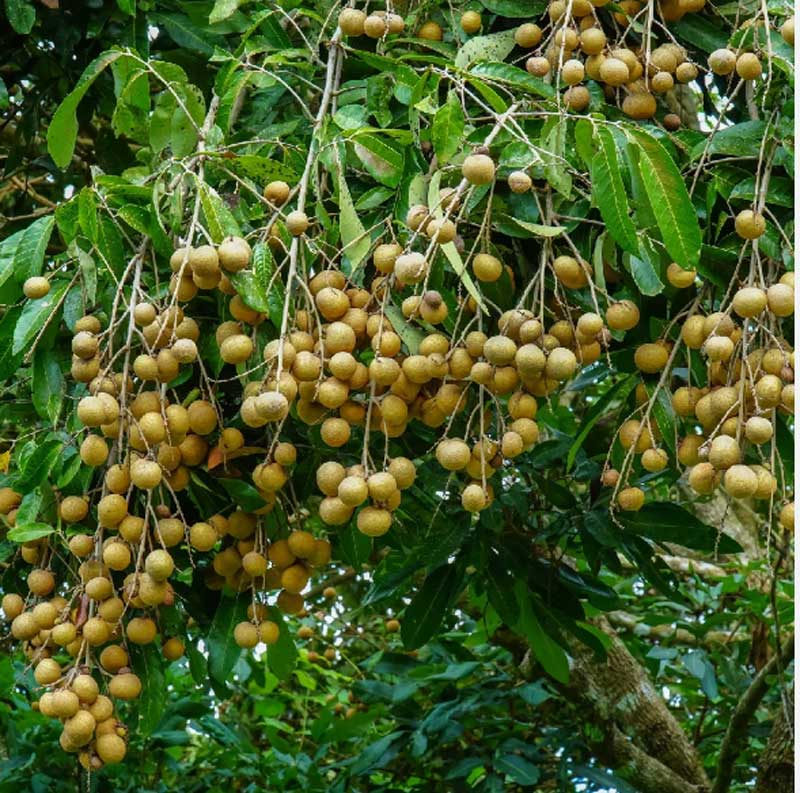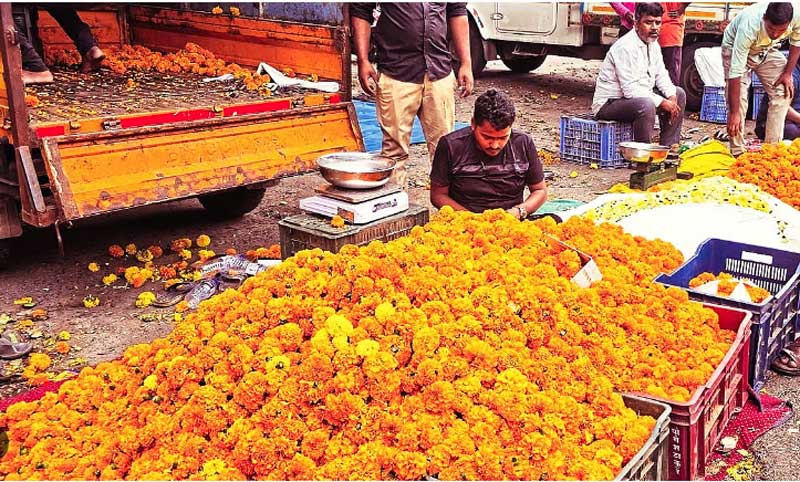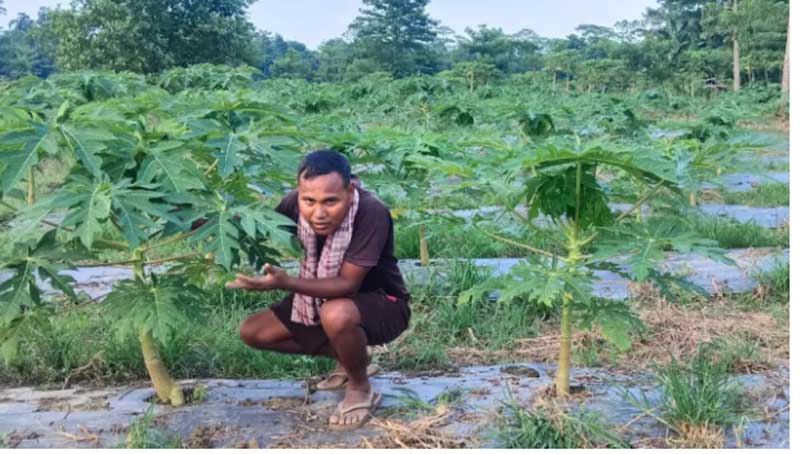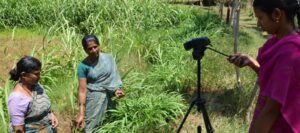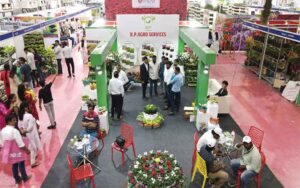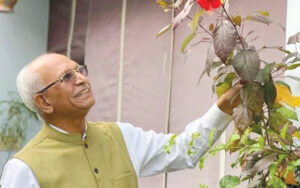Flourish your Agri-biz with these ‘instrumental’ digital initiatives
YP Singh
Agriculture sector has witnessed a revolution with the introduction of latest Information Technology. It has aided the way farmers manage their operations, make decisions and improve overall efficiency. It improves efficiency and productivity in agriculture and enhance the knowledge of farmers to help them to make better decisions about their crop and livestock.
Initiatives like National e-Governance Plan in Agriculture (NeGP-A) are implemented to introduce advanced technologies in agriculture and projects like Digital public infrastructure for agriculture aims to create one verified source of truth about the farmers and his/her crop-sown data. Many such measures such as Digital Crop Survey etc are taken by the government to support access to technology and information to farmers across the country.
Here’s the list of few most helpful digital initiatives for the farmers
Sub Mission on Agriculture Mechanization (SMAM): This project is in effect since April 2014 and promotes initiatives like ‘Custom Hiring Centers,’ establishing centres for advanced and high-value farming equipment, distributing diverse agricultural machinery, and conducting awareness programs for stakeholders through demonstrations and skill-building activities. This aims to benefit farm mechanization to small and marginal farmers. The program also makes sure that performance is assessed and certified at authorized testing facilities located all throughout the nation.
National Agriculture Market (e-NAM): It is a vast electronic trade platform to create a uniform national market for agricultural goods, it links the Agricultural Produce Market Committee (APMC) mandis that already exist. The e-NAM platform streamlines trading by offering traders, farmers, and Farmer’s Producer Organizations (FPO) digital services through a variety of modules like the FPO trading module and warehouse-based trading module.
PM KISAN Scheme: Direct Benefit Transfer mechanism is opted under the scheme to directly transfer the funds to eligible farmers’ bank. Through the Farmers Corner on the portal, farmers have the option to sign up for themselves. To broaden the scope of the program, the PM-KISAN Mobile App was created. It enables farmers to view their beneficiary status, change their name using data from their Aadhaar cards, and view a list of rewards that have been put into their bank accounts. Facial authentication has recently been added to the PM-KISAN smartphone app.
Agriculture Infrastructure Fund (AIF): Post-harvest management infrastructure and community farming assets are benefitted by this project. AIF generates medium to long-term debt financing opportunities for viable projects related to the subject. By offering incentives and financial support, the goal is to improve the nation’s agricultural infrastructure. In order to help create post-harvest management infrastructure, this assistance is offered digitally in the form of an Interest Subvention and Credit Guarantee. Farmers, Farmer Producer Organizations (FPOs), Self Help Groups (SHG), Primary Agricultural Credit Societies (PACS), and State Agencies/APMCs are among the beneficiaries.
National Mission on Horticulture: Very beneficial for the growth of horticulture sector encompassing bamboo and coconut. The HORTNET project introduces a web-based system that uses a workflow methodology to simplify receiving financial aid under the MIDH. Establishing e-Governance inside NMH is a noteworthy endeavour that emphasizes total transparency throughout all workflow operations, including online application submission, authentication, processing, and direct payment to beneficiaries’ bank accounts via DBT.
National Project on Soil Health and Fertility: The goal of distributing soil health cards to farmers nationwide is to lay the groundwork for addressing nutritional inadequacies in fertilizer usage. Farmers can keep track of their soil samples thanks to an accessible site for Soil Health Cards.
Pradhan Mantri Fasal Bima Yojana: Several innovative technological measures, such as Yield Estimation System based on Technology (YES-Tech), the Weather Information Network Data Systems (WINDS) portal, and the door-to-door enrolment app AIDE/Sahayak. Are introduced under this plan.
YES-TECH: With the method, best practices, and integration techniques to assure precise yield evaluations at the Gram Panchayat level, YES-TECH is a technology-driven system for yield estimation.
WINDS Portal: A centralized platform called WINDS Portal is used to organize and process hyper-local weather data that is gathered from several levels of automatic weather stations and rain gauges. The platform improves risk assessment and decision-making in disaster management, crop insurance, and agricultural advice, supporting the agricultural sector and rural economy.
AIDE app: By providing enrollment to farmers’ front doors, the AIDE app seeks to revolutionize the enrollment process. With this strategy, a smooth and transparent process is guaranteed, making crop insurance convenient and easily available to farmers.
ICAR has always been at forefront to promote advanced IT in agriculture. To accomplish this, it has complied over 100 mobile apps developed by ICAR, State Agricultural Universities, and Krishi Vigyan Kendras. These apps provide farmers with useful information, such as suggested practices, market prices for commodities, weather updates, advice services, and more. They include topics like crops, horticulture, veterinary medicine, dairy, poultry, fisheries, and integrated issues. Additionally, ICAR has developed the “Kisan Sarathi” digital multimedia network, which disseminates advice to farmers via 731 KVKs across the nation.
Leveraging agriculture innovations for farmers
The Central Govt has constituted a Screening Committee on leveraging agriculture innovations for farmers to facilitate combined implementation on pilot scale of selected technologies/interventions by Private companies/startups to develop and refine products based on field-level observations, data and inferences for a fixed period.
Further, government has built Digital Public Infrastructure for Agriculture as an open source, open standard at interoperable public goods as per budget announcements for the 2023-24. In this regards, Architecture of three core registries i.e. Farmer registry, Geo referencing of village map registry, crop sown registry has been finalized. These registries can be used to develop various farmers centric solutions by the state governments as well as private sector entities.
Expenditure Finance Committee has approved a Central Sector Scheme for blended Capital Support to finance startups for agriculture and rural enterprise relevant for Farm Produce Value Chain.
Looking into the unique advantages of Drone technologies in agriculture, the Department of Agriculture & Farmers Welfare has released the Standard Operating Procedures (SOPs) for use of drones in pesticide and nutrient application in public domain in December 2021.

